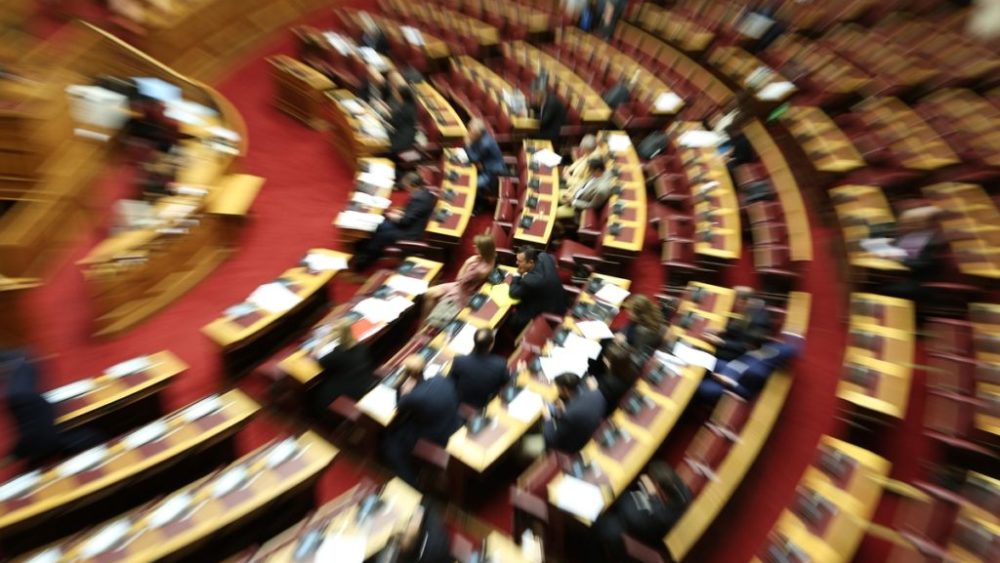Personally, my role as MP has not changed during the pandemic, although I was barred from entering numerous committee meetings and plenary sessions, only later and eventually being granted the possibility to e-attend (to an otherwise live, in situ meeting). This, of course, defeats the purpose of parliamentary procedures.
As explained above, a discombobulating procedure was introduced, according to which (a) most MPs were asked to vote in absentia for parliamentary procedures they were not allowed to be physically present in, while (b) later a two-tier system was introduced, according to which while some MPs were present, other MPs could only participate via teleconferencing. Were parliamentary procedure in its entirety to go online, this maladroit two-tier system would not have been the case.
From the start, our party MeRA25 had requested full plenary sessions and committee meetings via teleconferencing. This has not been granted. Instead of this, we now have this malfunctioning ‘two-tier’ parliamentary system, with some MPs physically present and some MPs connected online.
The government’s ill methods of legislation in order to implement its measures during the pandemic
The great majority of COVID measures were introduced by the government not as standard legislation but as Presidential Executive Orders (Πράξεις Νομοθετικού Περιεχομένου), effective immediately and then, eventually, after some time, ratified by Parliament.
The Constitution allows for Presidential Executive Orders (Πράξεις Νομοθετικού Περιεχομένου) in extreme circumstances of dire urgency, yet the implicit context is that such Orders cannot but be particularly brief and minimal. Instead of this, the government has issued Presidential Executive Orders (Πράξεις Νομοθετικού Περιεχομένου) comprised of many dozens of articles, effectively masquerading what would have been standard proposed legislation as urgent Presidential Executive Orders, thereby bypassing standard parliamentary procedure. This is no picayune matter; the consequences for Greece’s polity are dire. This is a method of legislation that commenced during the MoU years.
To reiterate, most measures were introduced as Presidential Executive Orders (Πράξεις Νομοθετικού Περιεχομένου) and Ministerial Decrees enabled by said Orders, thus MPs were asked to vote for them (the Presidential Executive Orders, not the Ministerial Decrees of course) well after these had been put into effect, thus turning the Parliament into a decorative element of Greece’s polity, without so much as a modicum of decorum.
The great majority of important decisions are taken in a clandestine, cloak-and-dagger fashion. For example, when the government decided, contra our Constitution, to prohibit the 17th of November peaceful demonstrations (remembering the 1973 Polytechnic School uprising against the ’67-‘73 military dictatorship), the government claimed that this is what the health experts proposed. When the Opposition demanded that the minutes of the health experts’ meeting be published, those minutes included no such explicit proposal and no rationale backing it.
According to the government, its COVID-related political decisions merely comply with the proposals of the Health Experts Panel. However, the minutes of the Health Experts Panel’s meeting are not published, and when they are published after pressure, they are usually of the following form: the Chief Secretary of the Ministry proposes X Y Z measures, and the Health Experts agree unanimously, with no mention of the discussion that transpired published in the meetings. Government officials and politicians have discovered a new role for themselves as impromptu immunologists…
Criticism toward the governing party about the measures adopted in order to deal with the pandemic
The governing party has received the rightfully opprobrious criticism detailed above, as well as criticism for its (a) lack of proper support for the Healthcare System, the budget for which has been actually reduced during the pandemic, (b) its hurry to make the country available to tourists in 2020 (and, as announced, 2021 as well) with only minimal, of not merely decorative, precautions, thus leading to the current wave of the pandemic in all its destructive splendour, (c) the innumerable occurrences of governing party apparatchiks being vaccinated for COVID-19 well before their time would be due, in lieu of citizens actually having the right to the vaccine at that particular point in time, (d) COVID-related public contracts for friends of the party, and (e) the inability, or lack of will, to introduce actual mass testing — with a scheme to introduce DIY rapid-tests-turned-into-self-tests-at-home as a caricature of mass testing taking place only now. Needless to say, in my opinion this critique, in its entirety, is anything but baseless.
No proposal from the opposition has ever been taken into account by the government. Instead of that, the government mainly accuses the opposition in toto that it aims to ‘risk the lives of citizens for ephemeral political gains.’
The use of technology during the pandemic
As detailed above, instead of the whole parliamentary procedure being taken online, Greece’s government belatedly opted for a two-tier system. Rather than enhancing parliamentary procedures via technological means, this inserted a wedge, an anomaly, into the way Parliament is working and into parliamentary decision-making. Physically present MPs address an almost empty Plenary, they address mostly empty seats. Non-physically present MPs still vote via signed letter, not via a digital system. Technology could have been put to good use in enhancing the Parliament; this has not been the route taken. Instead of that, a caricature of parliamentary procedure has taken hold of the Hellenic Parliament.
Again, the consequences for Greece’s polity will prove to be dire in the long run.
This article was originally published by The Press Project, available here.
Do you want to be informed of DiEM25's actions? Sign up here















